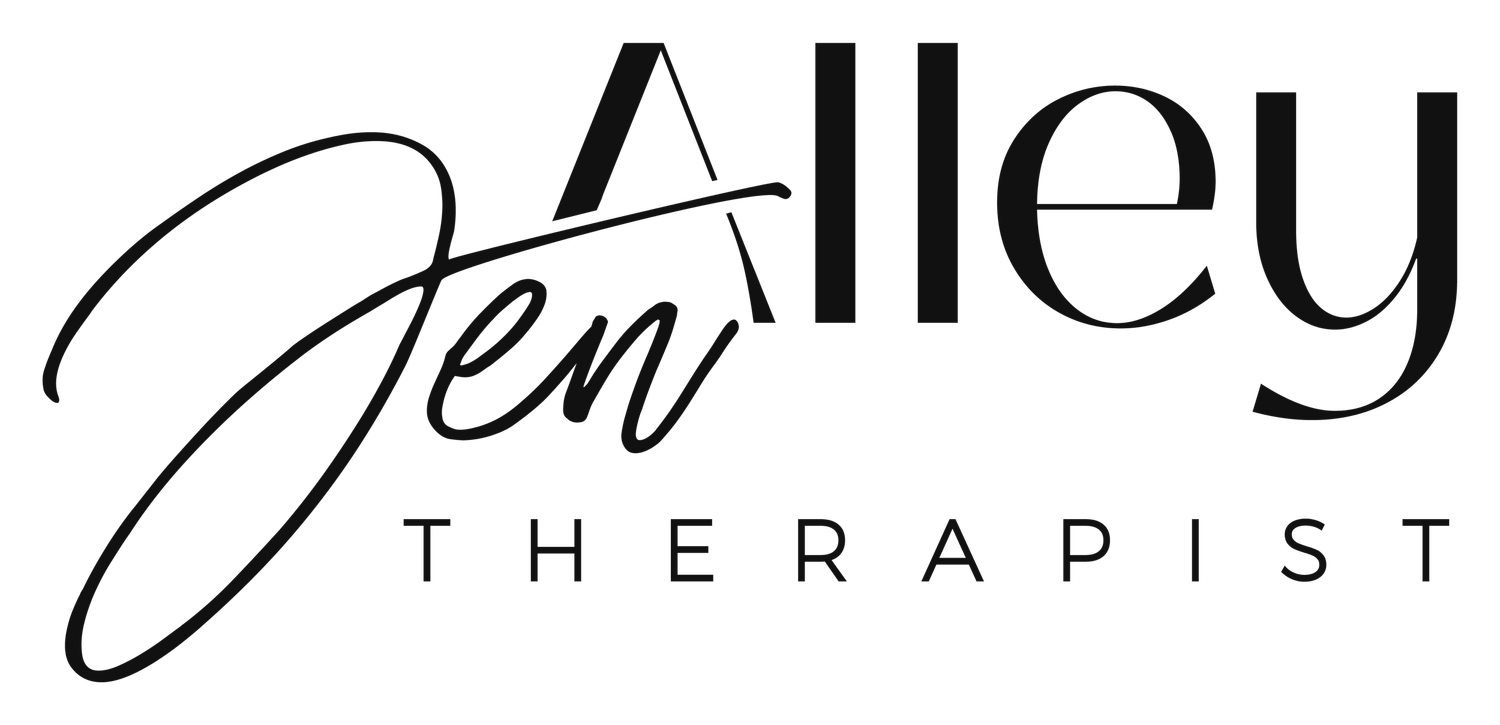Most people do not like conflict. Understandably, conflict can make us feel anxious or fearful about losing connection or having a negative interaction that will impact our relationship with the other person.
While there are certainly harmful ways of being in conflict (like stonewalling or criticizing or showing contempt), conflict in and of itself can be an important part of understanding ourselves, our people, and our needs in relationship with others. At its best, conflict can even help us to feel closer to those we care about.
One of the tools I learned many years ago from the is a practice of taking a pause to identify the story I am making up or the narrative I am having about what is happening.
At any given moment we are taking in sixty million bits of data per second. Of course, this is happening beneath our conscious awareness. Then, about 5-60 bits of that makes it into our working memory or conscious awareness. That means that even when we are in conflict, we are accessing previous memories, sensations, thoughts, meanings or understandings, and emotions (even from many years ago) about what this means or what we might need to know in the present moment.
When we are in a conflict, it is inevitably pulling at implicit threads from our past (whether it is related to this other person or not). For example, if I associate conflict with emotional abandonment from my history, it is likely that I will anticipate that during conflict and project that onto the current moment even if it isn’t relevant to what is happening in this present moment. My body may respond as though I will be abandoned. Or, perhaps I have a history in relationship of feeling like what I need or want doesn’t matter. It is likely that this thread of implicit memory or knowing will get pulled when conflict is present.
A helpful practice, then, is to identify, “What is the story that I am making up right now about what is happening?” In other words, “What is my brain telling me about what this conflict or how the other person is being means?”
When we are able to identify the story we are making up and add that sort of language, it takes us out of an accusatory/blaming posture (saying things like, “You always,” or, “You never”), and helps us to own our narrative. For example, I might say, “The story I am making up or telling myself right now is that you aren’t appreciative of what I do,” instead of, “You aren’t appreciative,” which is accusatory and will likely cause defensiveness.
The Wiseheart PDX handout (linked below) asks us to identify the feelings or emotions coming up for us as well as the unmet need. Again, this is a helpful practice for going inside to identify what is happening inside of us instead of merely reacting to the other person. In the above example, maybe I do need more overt appreciation from the other person and that is something that I can request. The last “step” of the model does invite us to make a request or consider how we can get our unmet needs met. Of course, we can’t force others to do something that they don’t want to do, but when we can identify our unmet need and communicate it in a respectful way, we are much more likely to have that need met than when we are defensive and critical and unaware of what we are needing or asking for (or what is being triggered inside of us). And, even if the other person is unwilling to meet our need, while that is hard information to receive, it still gives us important information about the relationship and the other person’s boundaries.
Ultimately, being able to track our own mind and body (which is a practice and not necessarily something most of us have been trained to do), gives us important information that can be helpful in how we navigate conflict.
For a copy of the handout I use with clients, please click here.

